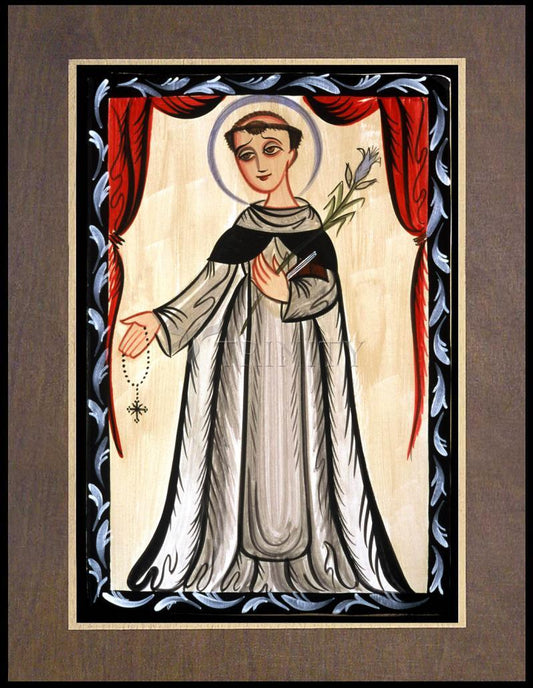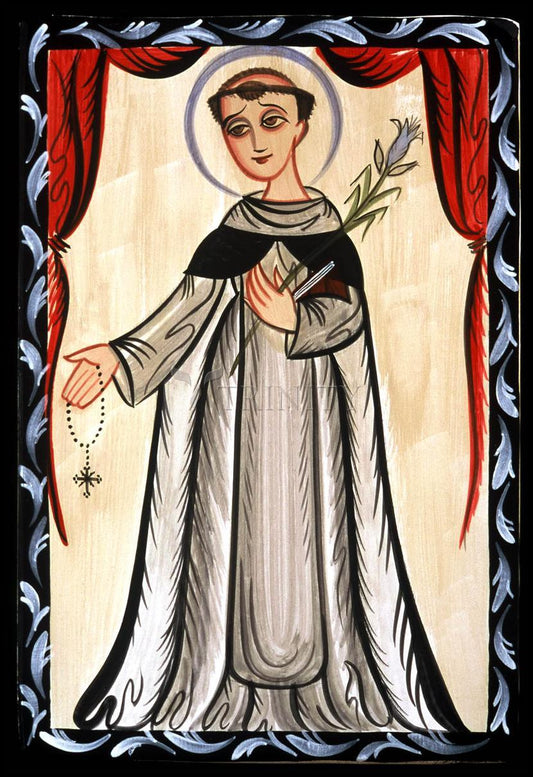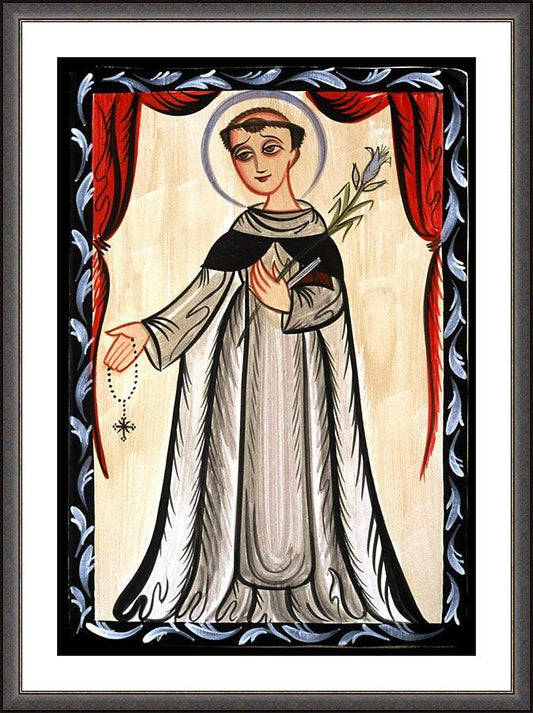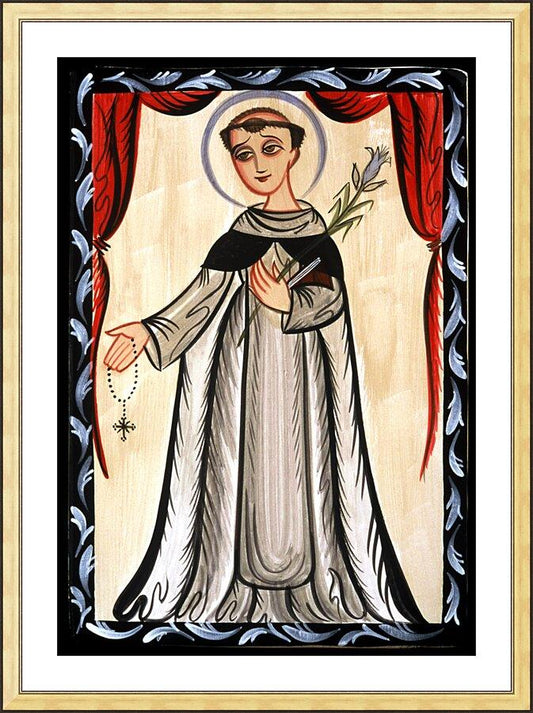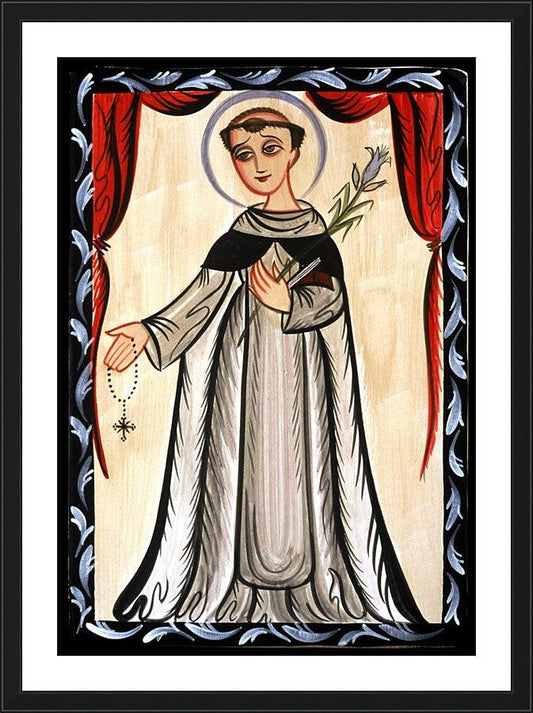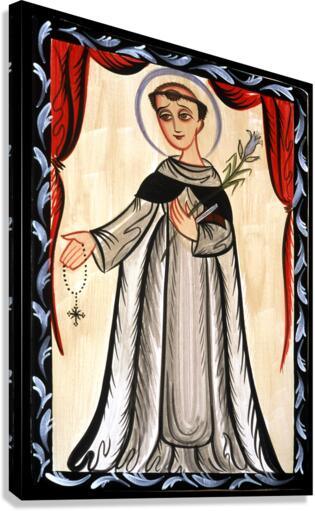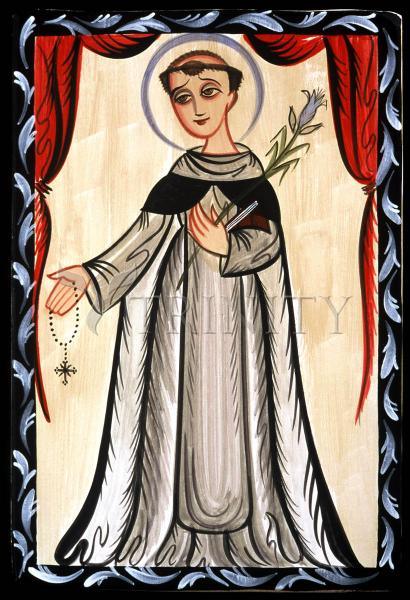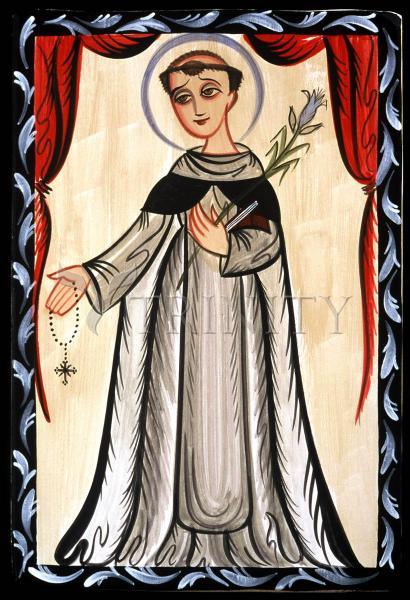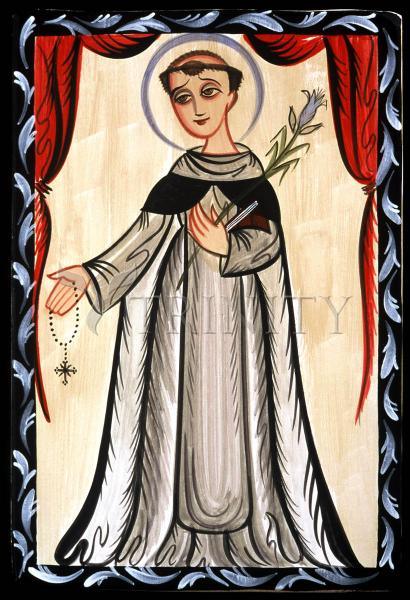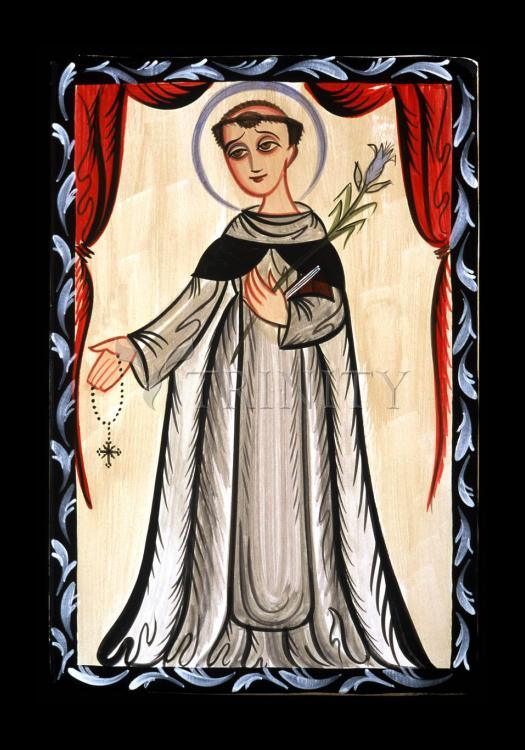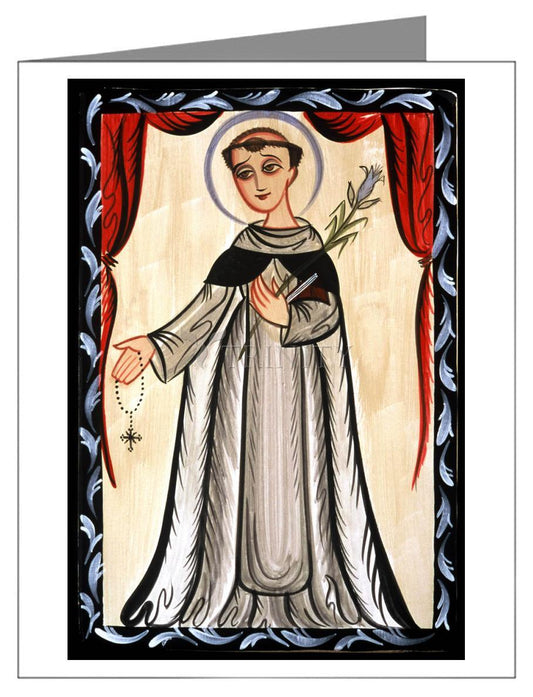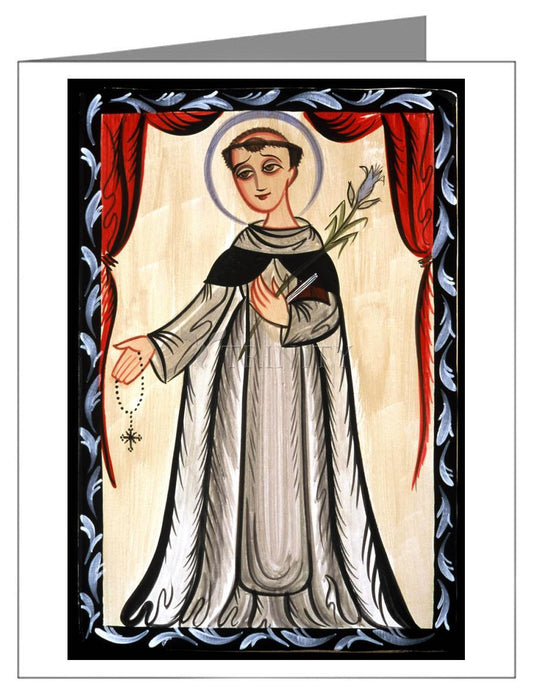Born of wealthy Spanish nobility. His mother was Blessed Joan of Aza who, when pregnant, had a vision that her unborn child was a dog who would set the world on fire with a torch it carried in its mouth; a dog bearing a torch in its mouth became a symbol for the Dominicans. At his baptism, his mother saw a star shining from his chest. He studied theology at Palencia. Canon of the church of Osma. Priest. Augustinian. A lifelong apostolate among heretics, especially Albigensians, and especially in France; worked with Blessed Peter of Castelnau. Founded the Order of Friars Preachers (Dominicans) in 1215, a group who live a simple, austere life, and an order of nuns dedicated to the care of young girls. Visionary. Friend of St. Amata of Assisi.
At one point Dominic became discouraged at the progress of his mission; the heresies remained. But he received a vision from Our Lady who showed him a wreath of roses, and told him to say the rosary daily, and teach it to all who would listen. Eventually the true faith won out. Dominic is often credited with the invention of the rosary, but it predates him.
Legend says that Dominic received a vision of a beggar who, like Dominic, would do great things for the Faith. Dominic met the beggar the next day. He embraced him and said, "You are my companion and must walk with me. If we hold together, no earthly power can withstand us." The beggar was St. Francis of Assisi.
"A man who governs his passions is master of his world. We must either command them or be enslaved by them. It is better to be a hammer than an anvil."
"Saint Dominic
Born: 1170 at Calaruega, Burgos, Old Castile
Died: August 4, 1221 at Bologna
Canonized: July 13, 1234 by Pope Gregory IX
Name Meaning: Belonging to God
Readings:
A man who governs his passions is master of his world. We must either command them or be enslaved by them. It is better to be a hammer than an anvil.
"Saint Dominic
Dominic possessed such great integrity and was so strongly motivated by divine love, that without a doubt he proved to be a bearer of honor and grace. And since a joyful heart animates the face, he displayed the peaceful composure of a spiritual man in the kindness he manifested outwardly and by the cheerfulness of his countenance.
Wherever he went he showed himself in word and deed to be a man of the Gospel. During the day no one was more community-minded or pleasant toward his brothers and associates. During the night hours no one was more persistent in every kind of vigil and supplication. He seldom spoke unless it was with God, that is, in prayer, or about God; and in this matter he instructed his brothers.
Frequently he made a special personal petition that God would deign to grant him genuine charity in caring for and obtaining the salvation of men. For he believed that only then would he be truly a member of Christ, when he had given himself totally for the salvation of men, just as the Lord Jesus, the Savior of all, had offered himself completely for our salvation. So, for this work, after a lengthy period of careful and provident planning, he founded the Orders of Friars Preachers.
In his conversations and letters he often urged the brothers of the Order to study constantly the Old and New Testaments. He always carried with him the gospel according to Matthew and the epistles of Paul, and so well did he study them that he almost knew them from memory.
Two or three times he was chosen bishop, but he always refused, preferring to live with his brothers in poverty. Of him Pope Gregory IX declared: "I knew him as a steadfast follower of the apostolic way of life. There is no doubt that he is in heaven, sharing in the glory of the apostles themselves."
"Excerpts from various writings on the history of the Order of Preachers



